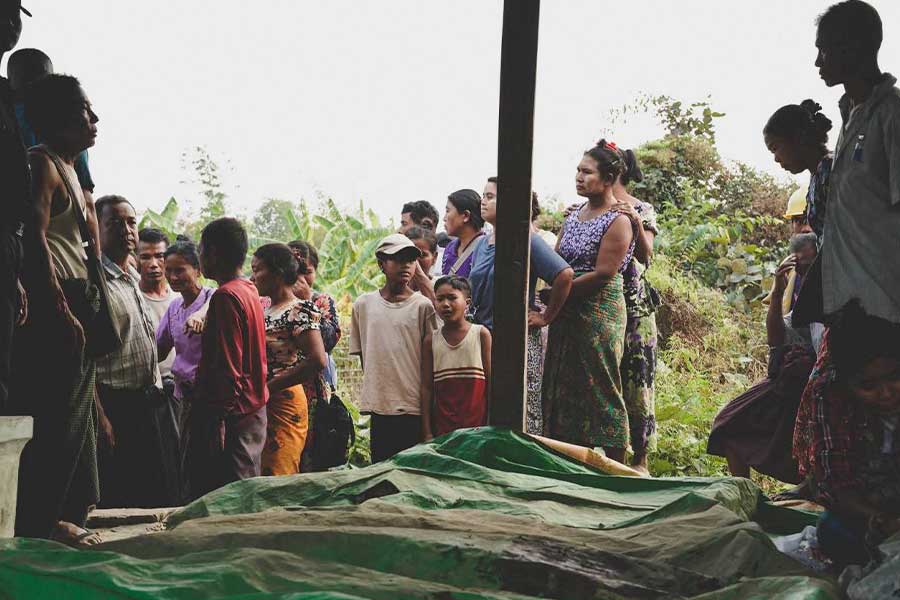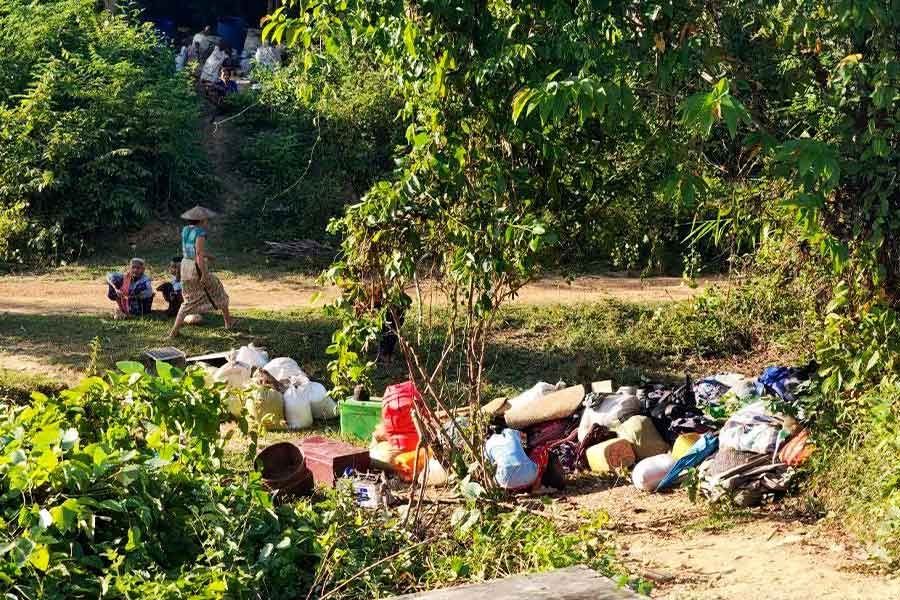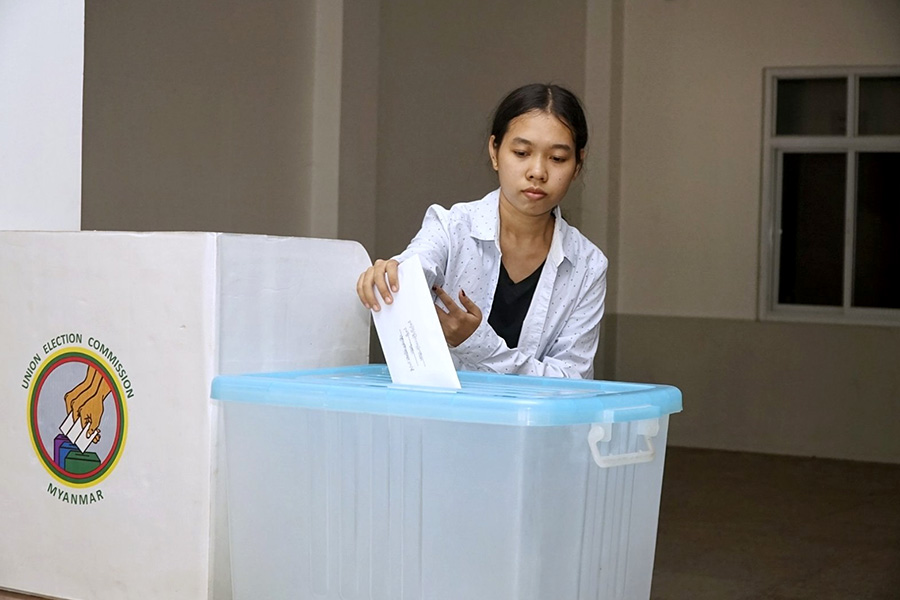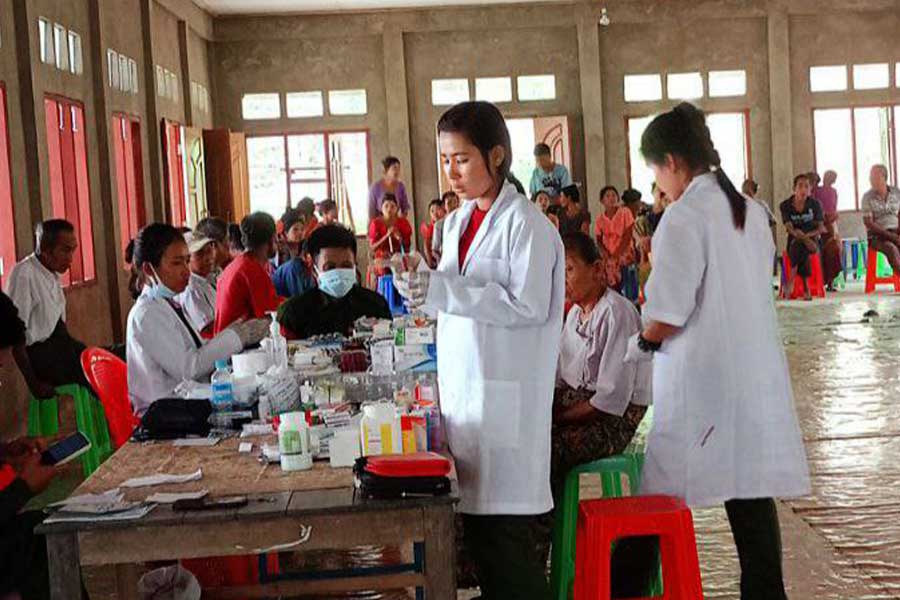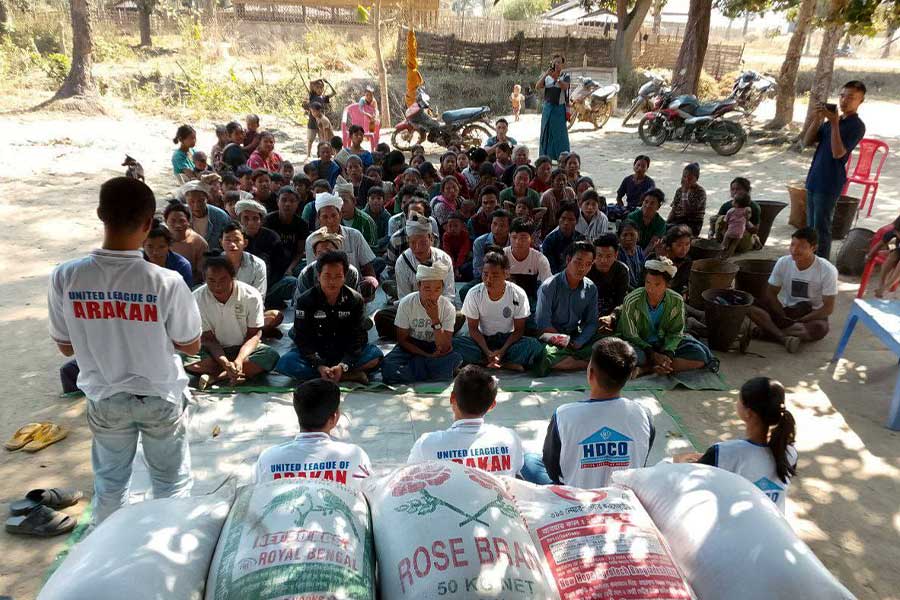- 15 mass casualty incidents from regime airstrikes reported in Arakan State since 2023
- Kyaukphyu IDPs forced to flee again amid junta airstrikes and artillery attacks
- New Diplomatic Movements Between Bangladesh’s New Government and the Arakan Public Administration
- Junta claims over 24 million ballots cast in 2025 poll, cites strong youth turnout
- ULA expands HIV prevention, healthcare services for sex workers in AA-held areas
Next administration urged to scrap repressive laws restricting press freedom
Media organisations and civil society groups that support freedom of expression have called on the incoming government to amend laws that continue to pose a threat to journalists and activists in Myanmar.
19 Dec 2020
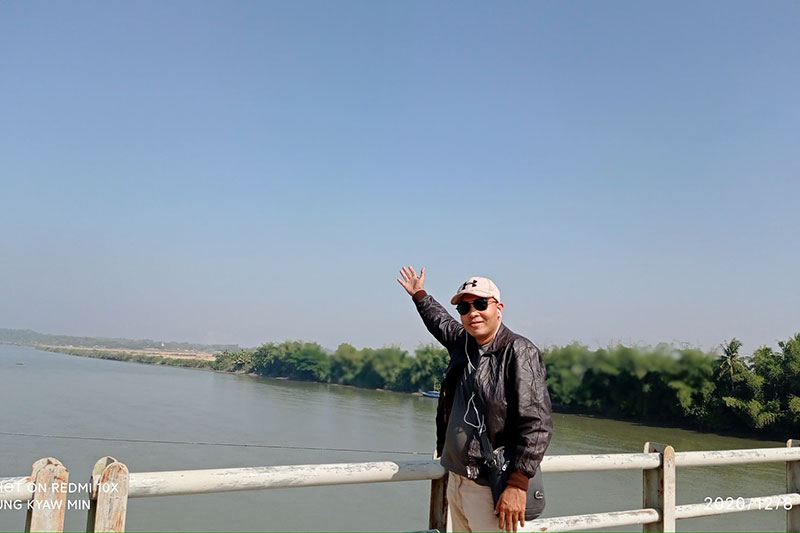
Hnin Nwe DMG
19 December 2020, Sittwe
Media organisations and civil society groups that support freedom of expression have called on the incoming government to amend laws that continue to pose a threat to journalists and activists in Myanmar.
Under the current government, journalists have been subject to prosecution under Section 66(d) of the Telecommunications Law, the Counter-Terrorism Law, Section 17 of the Unlawful Associations Act, and Section 500 and Section 505(b) of the Penal Code, said Ko Ye Wai Phyo Aung of Athan, a Yangon-based free expression advocacy group.
“It is very sad that authorities such as the government and the military view the media as the enemy. Government prosecution deters critical and investigative reports. What is certain is media agencies are finding it more difficult to report amid oppressive laws,” he said.
According to Athan, journalists have most frequently faced charges filed by the government and Myanmar’s military, while smaller numbers of cases were brought by political parties, businessmen and religious leaders.
Increased targeting of journalists has significantly impacted upon the flow of information under the current government, said the Myanmar Press Council’s U Myint Kyaw, who called on the next National League for Democracy (NLD) administration to amend laws as necessary for the security of journalists.
“For example, the amendments to the Telecommunications Law in 2016 were not enough. More needs to be amended. The State Secrets Act must also be amended,” he said.
In areas of armed conflict, armed organisations must respect journalists’ right to information, he said.
“By ‘armed organisations,’ I mean the military, police and all the other armed organisations,” he added. “And it is also important to ensure the rule of law. Only when perpetrators are held accountable will it prevent similar crimes from happening again.”
Arakan State-based Narinjara News Agency’s editor-in-chief said journalists’ access to information has been restricted as the government attempts to prevent local media from highlighting human rights abuses in Arakan State, where the military and Arakan Army have been at war for two years.
“In Arakan State, I myself was prosecuted for reporting,” said U Khaing Mrat Kyaw, the Narinjara chief editor. “And the editor-in-chief of DMG [Development Media Group] has also been on the run. Freedom of the press is critically important in democracies. The new government therefore needs to enact laws to ensure journalists can report safely.”
Ma Yin Yadana Thein, the director of Free Expression Myanmar, said existing laws in Myanmar do not protect journalists and in fact do just the opposite, suppressing journalists and their work, and posing a dire threat to freedom of expression.
“Journalists have been found to be mentally and physically insecure due to their lack of physical and legal security. Some journalists have been arrested and even ‘disappeared’... On the other hand, there are lawsuits against journalists and this has had a huge impact on reporters’ reporting,” she explained.
During the first four years of the NLD government, 67 cases were brought against journalists under provisions of the Penal Code and using laws covering defamation, terrorism and other alleged crimes, according to data compiled by Athan.
The ruling NLD won a supermajority of seats in the 2020 general election, enabling the party to form the new government early next year.




